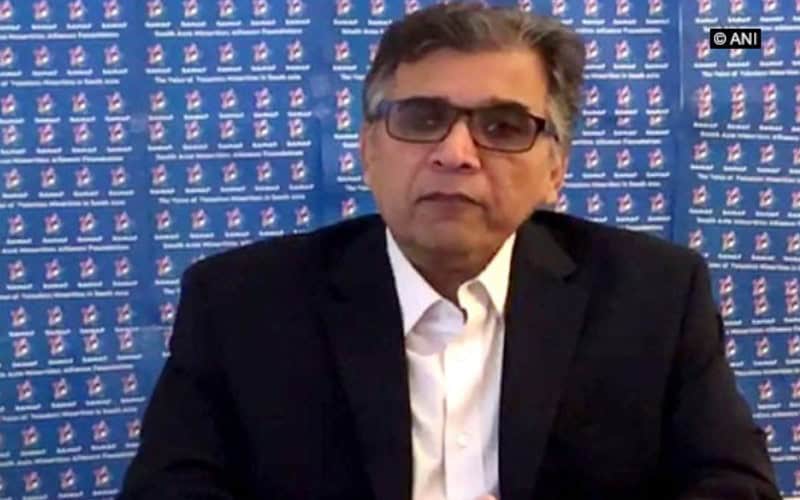Washington: The Voice of Karachi (VOK) chairman, Nadeem Nusrat said that Pakistan’s decision to observe 27 October as a Black Day to protest over human rights situation in Kashmir is “laughable”.
The VOK chairman, in a statement, said that Pakistan security forces are involved in large-scale human rights violations in Karachi, Balochistan, Khyber-Pakhtunkhwa, tribal areas and Gilgit Baltistan for the many years.
“Human Rights situation in Pakistan’s other areas is no more different, for Punjabi-dominated military forces are actively busy punishing Balochs, Pashtuns, people of Gilgit-Baltistan, Hazarah and tribal areas as well for raising voice for their rights. Just like Karachi, extrajudicial executions are a routine in Balochistan; thousands of people belonging to Pakistan’s non-Punjabi ethnic groups have gone missing since being taken into unlawful custody,” Nusrat reiterated.
Taking a jibe at Pakistan for observing Black Day, Nusrat said that Pakistani security forces have a shameful record of human rights violation and their disregard for the rule of law.
“Pakistan has absolutely no moral ground to extend support for Kashmiris or any other persecuted group in the world. If Pakistan is sincere with Kashmiris or wants its voice to be treated with respect globally, it will have to fix its own house first, and will have to not only stop the ongoing human rights abuses throughout Pakistan, it will also have to punish all those officials, no matter how high position they may hold, who were or are involved in extrajudicial killings, enforced disappearances, physical torture on detainees, and interference in political matters,” he added.
Shedding the light on Pakistan’s shameful human rights record in dealing with its own people, the VOK chairman said that in Karachi alone, over 25 thousand Mohajirs have been killed since 1992 by Pakistani security forces, most extrajudicially. It is on record that Pakistan’s two federal governments were sacked from the office by the then-president in the 1990s over massive extrajudicial executions in urban Sindh, mainly in Karachi, of Mohajirs. Successive Pakistani governments, both military and civil, have yet to explain why not a single culprit of such crimes against humanity was ever brought to justice.
Nusrat also reminded the world that Karachi has been facing yet another brutal security operation since 2013, in which thousands of innocent Mohajirs have been arrested without any justification. Hundreds of these arrested Mohajirs have gone missing since their arrests, and nearly one thousand are still languishing in prison under fabricated charges. Hundreds of cases of enforced or involuntary disappearance have been documented by the United Nations’ special group on missing persons in its last 15 quarterly reports.
“Pakistan’s security forces didn’t even spare 73-years-old, Harvard-educated Professor Zafar-Hasan Arif and dumped his tortured dead body in the outskirts of Karachi after killing him extra judicially early this year. Recently, a security officer admitted on camera how men in uniform routinely kill innocent civilians and Mohajir political workers in Karachi, but culprits of such crimes are never punished, nor their masterminds are ever exposed,” Nusrat pointed out.
Nusrat asserted that Pakistan ’s own policies are responsible for most of the situation that Kashmiri people have been facing since 1947.
“It was Pakistani military that had precipitated the war merely a few weeks after its independence, apparently against the wishes and knowledge of Pakistan’s founder Mohammad Ali Jinnah, by launching tribal Lashkar(militia) from Waziristan into Kashmir. The inconclusive result of this adventure still affects the geopolitics of both countries. In addition, Pakistan’s constant involvement into Kashmir has turned a purely regional problem into a bone of contention between the two nuclear-armed states. Also, due to Pakistan ’s involvement, the international community sees Kashmir issue as a Pakistani grievance, rather than an organic movement run by Kashmiri people,” he said.
He further advised Pakistan to end its occupation of Balochistan, Gilgit-Baltistan and withdrawal of its forces from Karachi and Khyber Pakhtunkhwa before asking India to withdraw troops from Kashmir.
“If Pakistan is sincere in seeking a permanent solution for Kashmir, it must first end its occupation of Balochistan, Gilgit-Baltistan and withdraw its forces from Karachi and KPK (Khyber Pakhtunkhwa) before demanding India to withdraw its troops from Kashmir. Without taking these steps, Pakistan’s decision to hold the Black Day would be considered nothing more than a butt of jokes,” Nusrat said.
While talking about taxes, he drew attention to the fact that Pakistan runs on taxes paid by Karachi, but Pakistan’s Punjabi-dominated military has been treating this great city as worse than an occupied territory and its people as slaves.
[source_without_link]ANI[/source_without_link]

